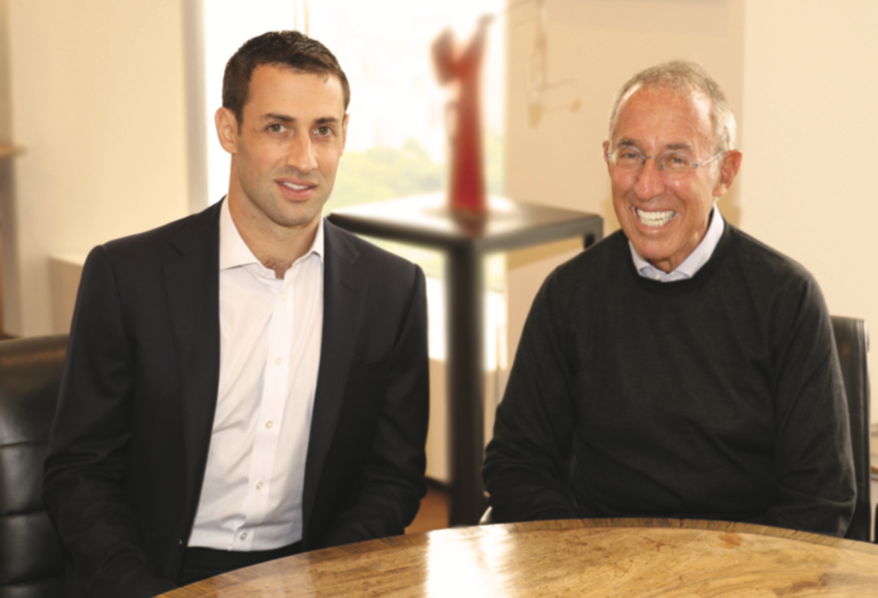The first quarter of 2020 was an extremely difficult period for global health and the economy. Most financial markets declined substantially, and Baron WealthBuilder Fund (the “Fund”) was also significantly impacted. The Fund fell 18.49% (Institutional Shares) in the quarter. While disappointing, that result was better than its comparable benchmarks. The S&P 500 Index fell 19.60%. The MSCI ACWI Index, which measures performance of global markets, declined 21.37%.
The historic bull market for the last 11 years came to an abrupt halt as COVID-19 paralyzed most world economies. Record low domestic unemployment suddenly skyrocketed with an unprecedented number of jobless claims as many businesses shuttered for the time being. Daily lives have been significantly altered and both individuals and businesses are adjusting to the new (and hopefully temporary) normal. Government assistance has also been substantial and will likely be sustained and increased until this health crisis is curtailed.

Michael Baron, Assistant Portfolio Manager and Ron Baron, CEO & Portfolio Manager
Table 1. Performance
Annualized for periods ended March 31, 2020
| Three Months3 | One Year | Since Inception (December 29, 2017) |
|
|---|---|---|---|
| Baron Wealth Builder Fund Retail Shares1,2 | (18.48)% | (6.56)% | 1.65% |
| Baron Wealth Builder Fund Institutional Shares1,2 | (18.49)% | (6.37)% | 1.83% |
| Baron Wealth Builder Fund TA Shares1,2 | (18.40)% | (6.36)% | 1.87% |
| S&P 500 Index1 | (19.60)% | (6.98)% | 0.48% |
| MSCI ACWI Index1 | (21.37)% | (11.26)% | (4.49)% |
1 The indexes are unmanaged. The index performance is not Fund performance; one cannot invest directly into an index. The S&P 500 Index measures the performance of 500 widely held large cap U.S. companies. The MSCI ACWI Index is an unmanaged, free float-adjusted market capitalization weighted index reflected in US dollars that measures the equity market performance of large- and mid-cap securities across developed and emerging markets. The indexes and the Fund are with dividends, which positively impact the performance results.
2 The performance data in the table does not reflect the deduction of taxes that a shareholder would pay on Fund distributions or redemption of Fund shares.
3 Not annualized.
Performance listed in the above table is net of annual operating expenses. Annual expense ratio for the Retail Shares, Institutional Shares, and TA Shares as of December 31, 2019 was 1.57%, 1.33%, and 1.33%, respectively, but the net annual expense ratio was 1.48%, 1.23%, and 1.23% (includes acquired fund fees, net of the Adviser’s fee waivers), respectively. The performance data quoted represents past performance. Past performance is no guarantee of future results. The investment return and principal value of an investment will fluctuate; an investor’s shares, when redeemed, may be worth more or less than their original cost. BAMCO, Inc. (‘BAMCO” or the “Adviser”) has agreed that, pursuant to a contract expiring on August 29, 2030, unless renewed for another 11-year term, it will reimburse certain expenses of the Fund, limiting net annual operating expenses (portfolio transaction costs, interest, dividend, acquired fund fees and expenses and extraordinary expenses are not subject to the operating expense limitation) to 0.30% of average daily nest assets of Retail Shares, 0.05% of average daily net assets of Institutional Shares and 0.05% of average daily net assets of TA Shares, without which performance would have been lower. Current performance may be lower or higher than the performance data quoted. For performance information current to the most recent month end, visit www.BaronFunds.com or call 1-800-99BARON.
Before the virus’ impact, company operations flourished at many of the Fund’s investments. The markets peaked on February 19, 2020 with the Fund up 13.84% year-to-date at that time. That compares favorably to the S&P 500 Index and MSCI ACWI Index, which were up 5.08% and 2.74%, respectively. The Fund was ranked in the top 4% of its Morningstar Category for the trailing twelve months at that point.
We believe it is helpful for investors to understand both what occurred in the markets and our underlying funds before the health crisis, as well as how these investments performed during the pandemic and how they are positioned for an eventual recovery.
Through the market’s peak, the underlying holdings in Baron WealthBuilder Fund were performing very well on both an absolute and relative basis. Eight underlying funds, representing 50.5% of the portfolio, ranked in the top 5% of their respective Morningstar categories over the trailing twelve months. And eleven underlying funds, representing 85.7% of the portfolio, ranked in the top 20% of their respective Morningstar categories.* The Baron investment process was generating very good absolute and relative results.